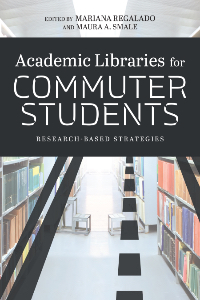I’m on sabbatical for the spring and early summer, working on a study of undergraduate attitudes and practices around their course reading that should complement our research on students’ lived experiences at CUNY. I’m interested in how our students get access to what they need to read, their process while reading (for example, do they take notes? where do they find space and time to read?), how they prioritize the task of reading, and where they encounter frustration and success.
This is not a post about the results of my research — while I’ve finished up interviews, transcriptions, and coding, I’ve yet to dig into writing up. But I wanted to take some time to write and think about my research practice while the interviewing, transcribing, and coding process is still relatively fresh in my mind. In particular I’d like to consider one specific question I asked during my semi-structured interviews with students:
Are there any questions you thought I would ask that I didn’t?
This question closed out most of my 30 interviews with students and elicited a variety of responses. It’s not a question I’ve asked of research participants before this study, though it seemed like a potentially useful twist on the “is there anything else you’d like to share?” question that I’ve often used at the end of interviews.
Let’s start with the flyers I hung up at BMCC, Brooklyn College, and City Tech to recruit students. Here’s what they said:
BMCC* Students: I’m a City Tech professor doing a study on college students and course reading, and I’d like to interview you.
*or Brooklyn College or City Tech
Underneath that was a bit of text about participant incentives, my name, and the email address to use to contact me for more information or to join the study. When students emailed me I responded briefly with information that was mostly logistical: participants must be at least 18 years old, interviews will take about 30 minutes and be audio-recorded, the Metrocard/Amazon giftcard is for $10.
When students came meet me for an interview, the first thing I did was ask them to read and sign the consent form, as required by CUNY’s Institutional Review Board. The form is 1 1/2 pages long, and while there is a brief summary of my project, it’s predominantly required text about potential risks and benefits, confidentiality, participant rights, and non-participation or withdrawal. In my experience most students read through consent forms fairly quickly; I always ask students if they have any questions before signing, and most don’t.
Looking back at students’ responses to my new last interview question has been fascinating. Most students replied with “no” or some variation on no, like this student from BMCC: “You actually asked all the right questions.” And this somewhat humorous response from a City Tech student: “I think you’ve asked a sufficient amount of questions” (laugh).
A Brooklyn College student thought I would ask about their prior experiences and background with reading, because “a lot of college students hate reading and, like, dread it.” They further speculated on the source of students’ reading struggles: “maybe because they just don’t have really good foundations in reading.” Since I did ask students about their experiences with reading in high school or educational settings before college, as well as about their struggles with reading, I was glad to hear that this student’s expectations matched the interview’s reality.
A couple of students replied that they thought I would ask them to read during the interview, like this Brooklyn College student: “I thought I would come here to read something and you would get my opinion on that.” This student also shared that “I really like that it was specified towards me.” In prior rounds of research we’ve heard from students that mapping their days and considering their research process offered an opportunity for self-reflection that they found valuable, and I think this student’s response hints at that kind of reflection as well.
Several students across all three colleges told me that they thought I would ask whether their reading was difficult or interesting, or about specific topics for reading “like, for English classes” (City Tech). A BMCC student expected me to ask about their process for writing papers, which makes sense given that a paper is often the end result of reading that students are required to do.
A few students responded to my question by asking for more specific information on my study, including what I planned to do with the results of the research. Some students had asked this question when they initially emailed me (and one student mentioned that my email had answered all of her questions). In response to the students who asked for more details I shared a bit about my role as a library faculty member and wanting to learn more about what kinds of course materials students need and where they encounter barriers accessing or reading them. I also let students know that I’ll be sharing the results of my research both within CUNY and more broadly via conferences and publications.
Looking back at all of these student responses makes me think that I should add a sentence or two about the purpose of the research to my email with students when signing them up for the study. I also wonder whether I’ve been clear enough about the purpose of my research on the consent form, though it’s unavoidable that some of the required language on the consent form is quite dry (and with its length it’s easy for participants to treat it like terms & conditions and just read quickly and sign). Overall I think this new twist on my final question is a good one, and I’m inclined to keep it for the future.



